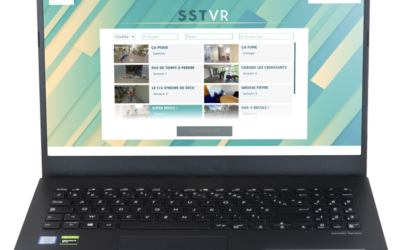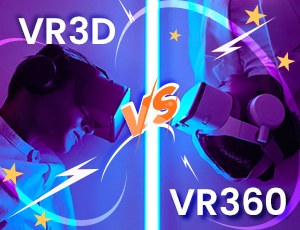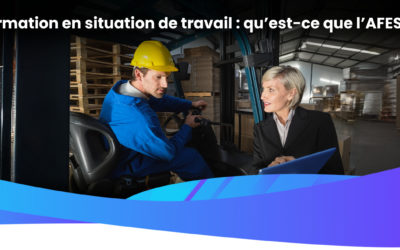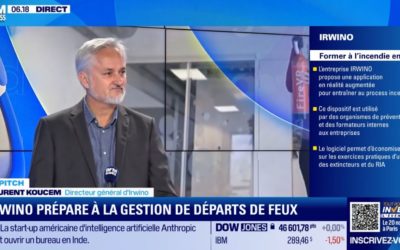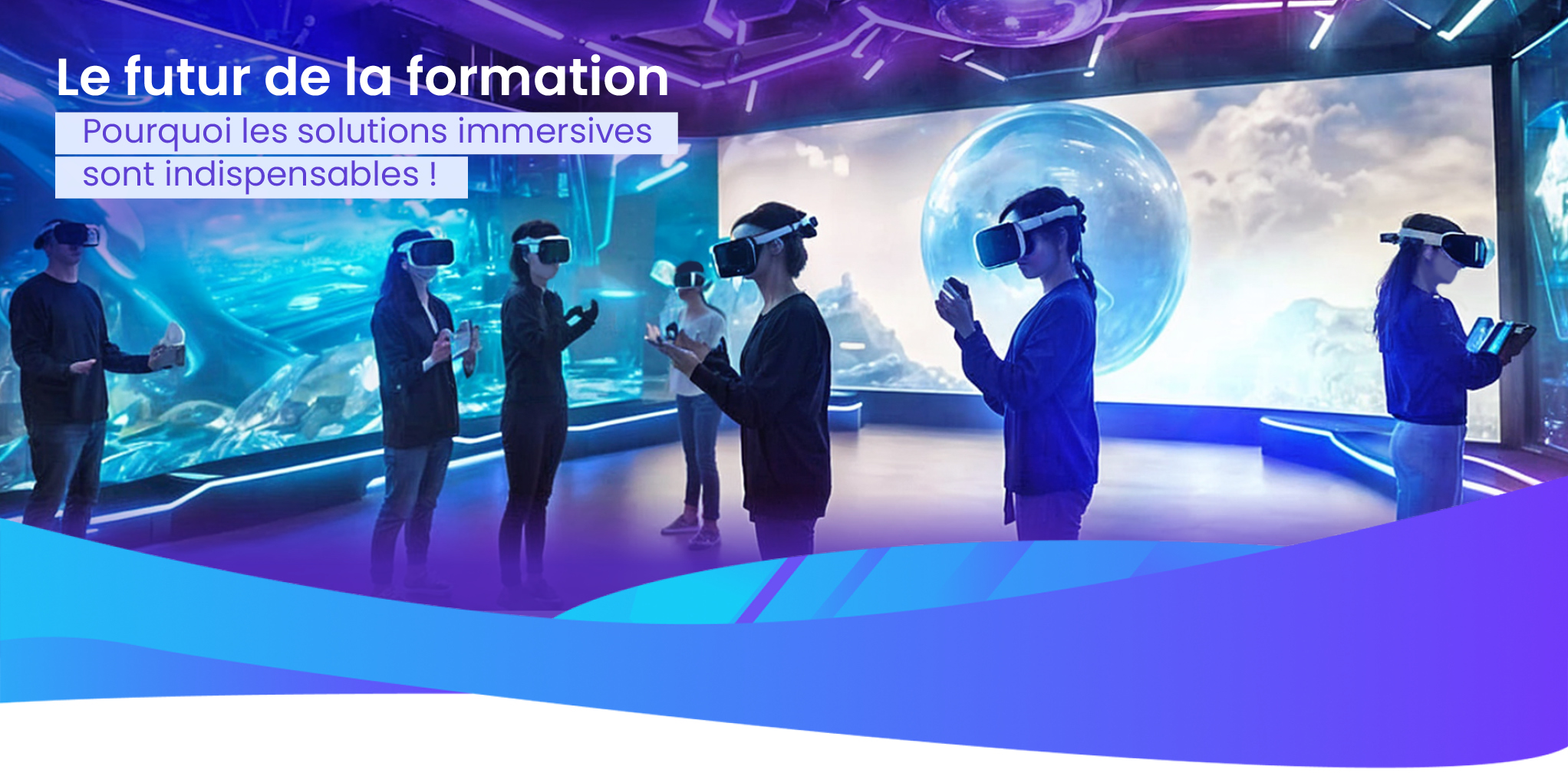
Find out why immersive solutions transforming vocational training. From interactive and effective experiences for trainers and learners, with reduced ecological impact.
Today, IRWINO explores the reasons why so-called immersive learning are essential for the future of training, with an emphasis on environmental issues, environmental and urbanparticularly in the context of fire training.
Years of experimentation and technological advances have progressively demonstrated that immersive solutions have become the preferred choice in the industry. essential for training. Their educational effectivenesscombined with their positive impact on the environment and their logistical flexibilityThis has made it an unavoidable choice for companies and training organizations alike. Legal and environmental constraints reinforce this trend.
In this context, immersive solutions are becoming increasingly popular. educational tools offering realistic training courses that respond to the needs of our customers. environmental challenges and logistics.

Ecological and environmental challenges
Reducing carbon footprint
Visit traditional training often involve extensive travel, generating a considerable carbon footprint significant. The use of immersive solutions such as those from IRWINO helps to reduce this footprint by replacing physical training with online training. virtual reality (VR) and augmented reality (AR).
For example, FIRE VR, a fire training simulatorreplaces real fire extinguishers by virtualized versionsFIRE VR has enabled us to reduce the consumption of resources and the production of waste. FIRE VR has made it possible to training up to 150 trainees in a single day, optimizing teaching efficiency while minimizing environmental impact.
Urban restrictions and space constraints
L'urbanization complicates the organization of training courses requiring great spacessuch as handling fire extinguishers. Some municipalities refuse parking permits for mobile units fire training.
Visit immersive environments offer a viable alternative, with several advantages:
- Eliminate the logistical burden of bulky equipment
- Training can be carried out in small spaces (1.5m x 1.5m is sufficient)
- Quick installation (less than 5 minutes)
- Increased safety: no exposure to real fires or dangerous chemicals
Immersive Learning: the solution to new challenges
Faced with the demands environmental and legalcompanies need to innovate when it comes to training. L'immersive learningbased on VR and AR, reduces the need to travel and the use of physical resources, thus meeting ecological and regulatory imperatives.
The future of vocational training
Professional training is undergoing a major transformation with the rise of immersive solutions. The RV and the RA are revolutionizing learning by offering engaging and interactive experiences.
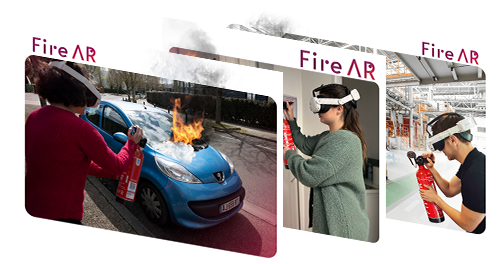
The benefits of immersive solutions
Immersive solutions place learners at the heart of at the heart of real-life situationsThis interactive method encourages learning. This interactive method encouragesautonomy and provides instant feedback, speeding up theskills acquisition.
Customization and adaptability
VR and AR training scenarios can be tailored to the specific needs of each organization, especially in areas such as fire training.
Safety and rehearsal
Immersive training enables learners to :- Practicing dangerous situations with no real risk
- Repeat scenarios as many times as necessary
- Learn from their mistakes in complete safety
Progress tracking and instant feedback
Immersive technologies offer :
- Customized courses based on learner profiles
- Precise performance monitoring
- Real-time feedback for continuous improvement
Cost reduction and flexibility
In the long term, immersive training is more cost-effective thanks to :
- Elimination of travel and logistics costs
- Simultaneous training for several learners
- Easy updating of educational content
Greater commitment and motivation
The fun, innovative aspect of immersive technologies increases motivation and improves knowledge retention.
Challenges and implementation of immersive training
Challenges
- Initial investment : The cost of equipment and content development can be significant.
- Training the trainers : The adoption of new technologies requires trainers to upgrade their skills.
- Pedagogical engineering : Designing immersive scenarios requires specific expertise.
Keys to successful implementation
- Define clear teaching objectives
- Working with experts in VR/AR and pedagogy
- Design realistic and engaging scenarios
- Test and fine-tune solutions before mass deployment
- The benefits of virtual and augmented reality training
The benefits of virtual and augmented reality training
Immersive learning is based on active experimentation, promoting better knowledge retention. Immersive training enables learners to :
- Immerse yourself in realistic virtual environments
- Interact in real time with professional scenarios
- Acquire technical skills in a practical way
The benefits of Fire VR, immersive learning in virtual reality for firefighters
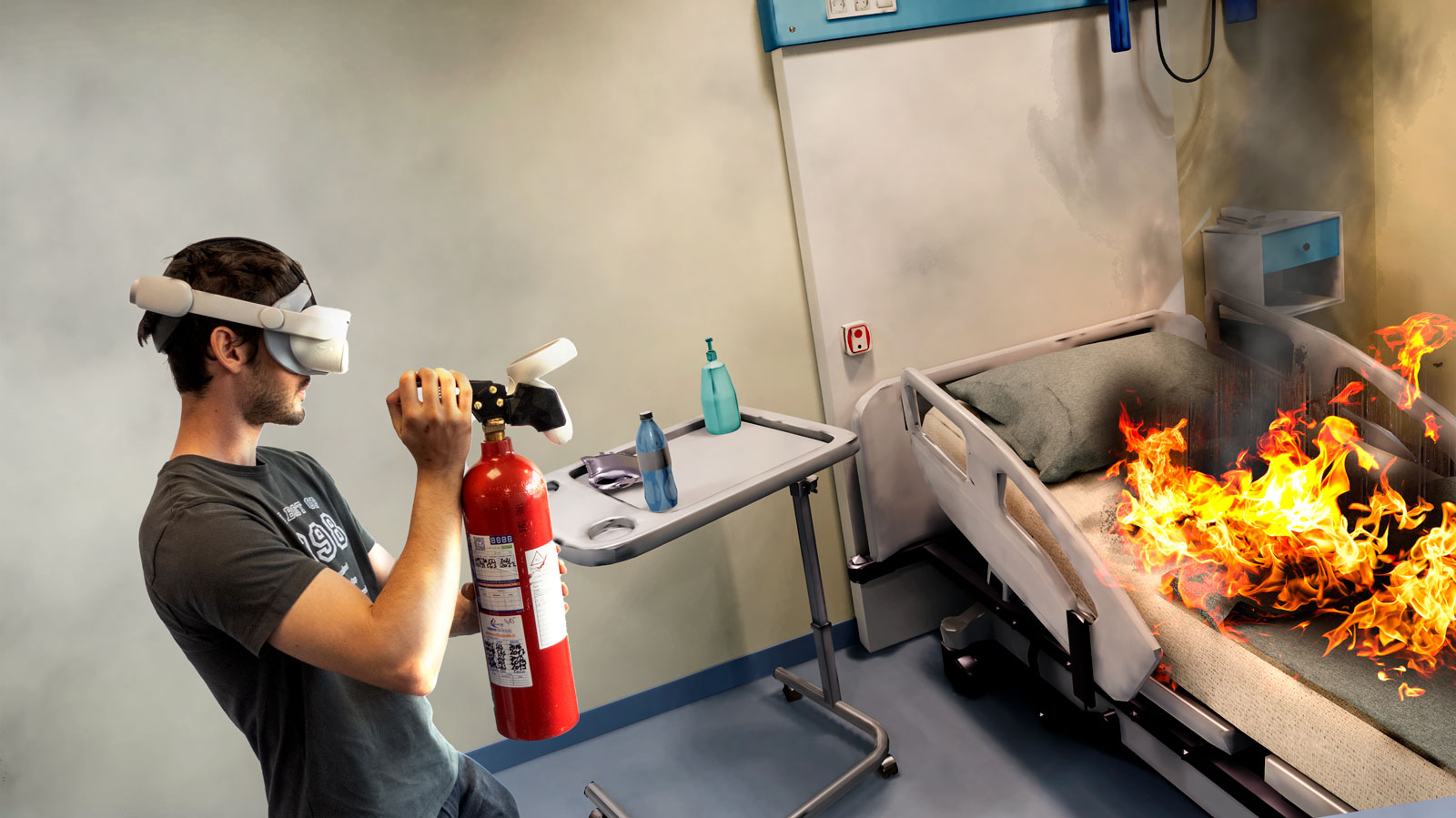
FIRE VR is a fire training simulator featuring interactive virtual extinguishers recycled from real equipment.
- Various environments : tertiary, industrial, ERP type U&J
- Multiple scenarios : more than 18 scenarios, adapted to different types of fire
- Efficiency and flexibility: wireless headset, quick installation, no consumables or flammables
Find out more about FIRE VR, the virtual reality fire simulator.
The benefits of Fire AR, an immersive augmented reality firefighting solution
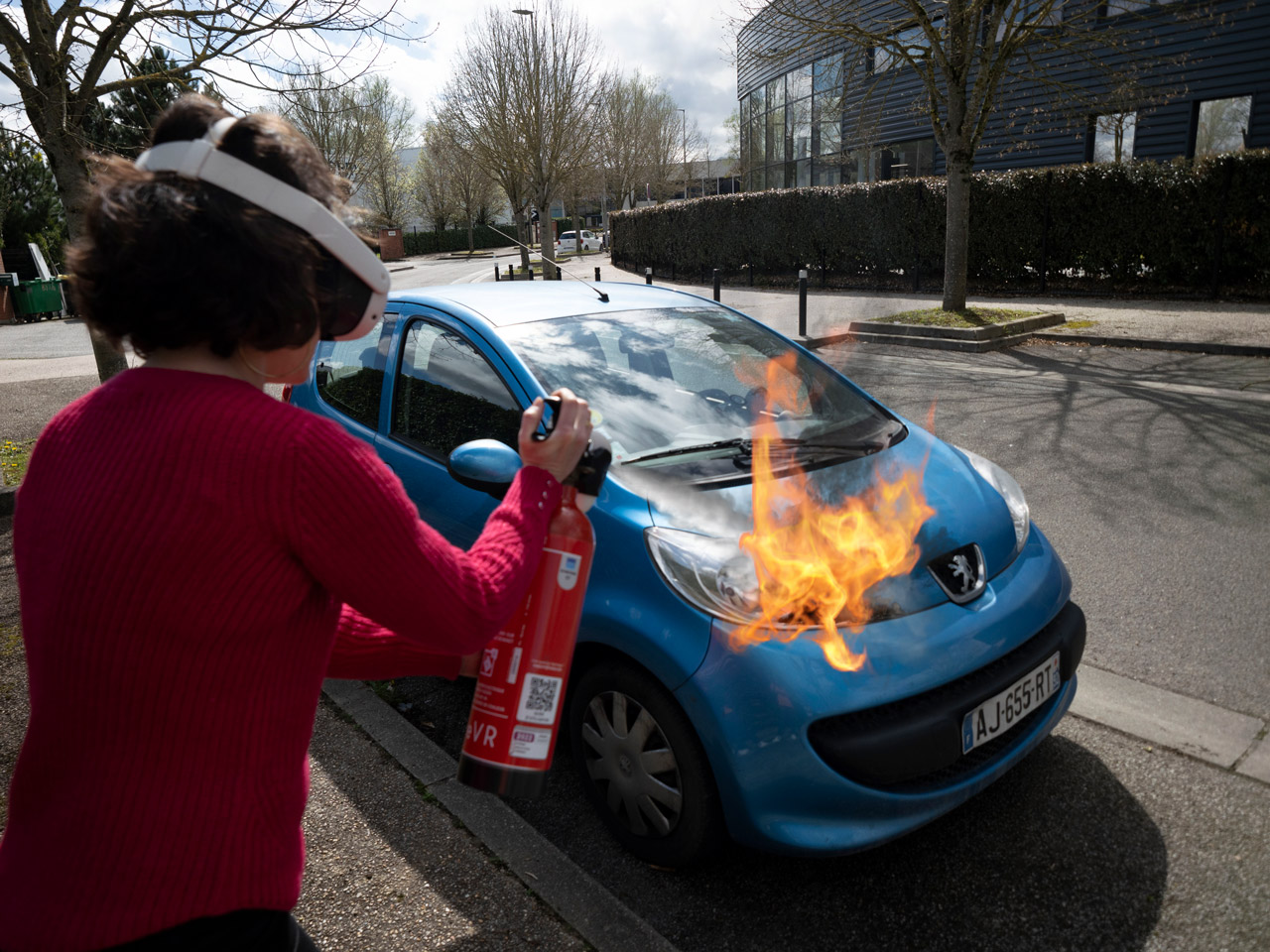
Fire AR allows learners to train in their usual working environment, with personalized, interactive scenarios.
- On-site training : without modifying the actual environment
- Flexible scenarios : quick creation of a variety of exercises
- Large drive surface : several dozen square metres
- Interactive learning : handling fire extinguishers, raising doubts, sounding alarms, calling for help, evacuation
Find out more about FIRE AR, the augmented reality fire simulator.
Conclusion: Why are immersive solutions essential?
Immersive solutions embody the future of professional training. They respond to ecological, environmental and urban challenges, while offering engaging, interactive experiences.
Companies that adopt these technologies today position themselves as the training leaders of tomorrow. As one industry expert puts it:
" Immersive technologies redefine training and make learning more engaging and effective. "
The future of training is immersive, and organizations that embrace this revolution will be best prepared for tomorrow's challenges.

